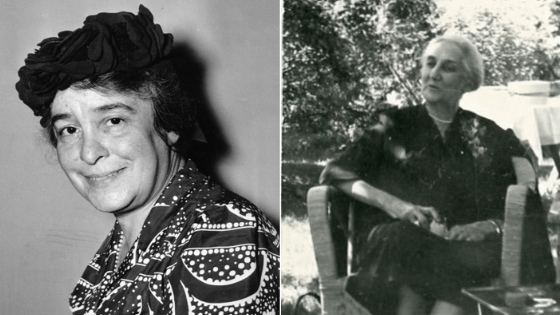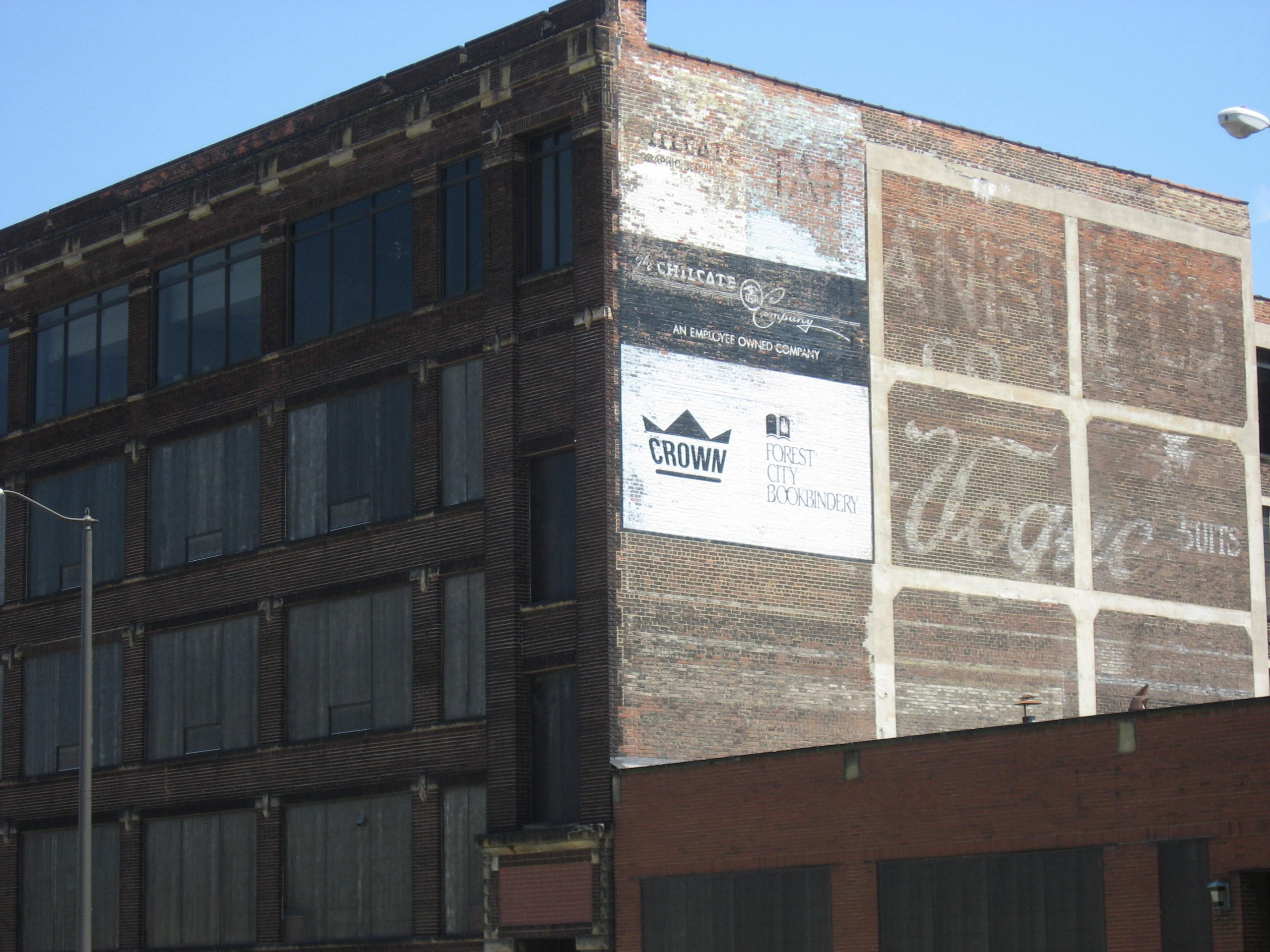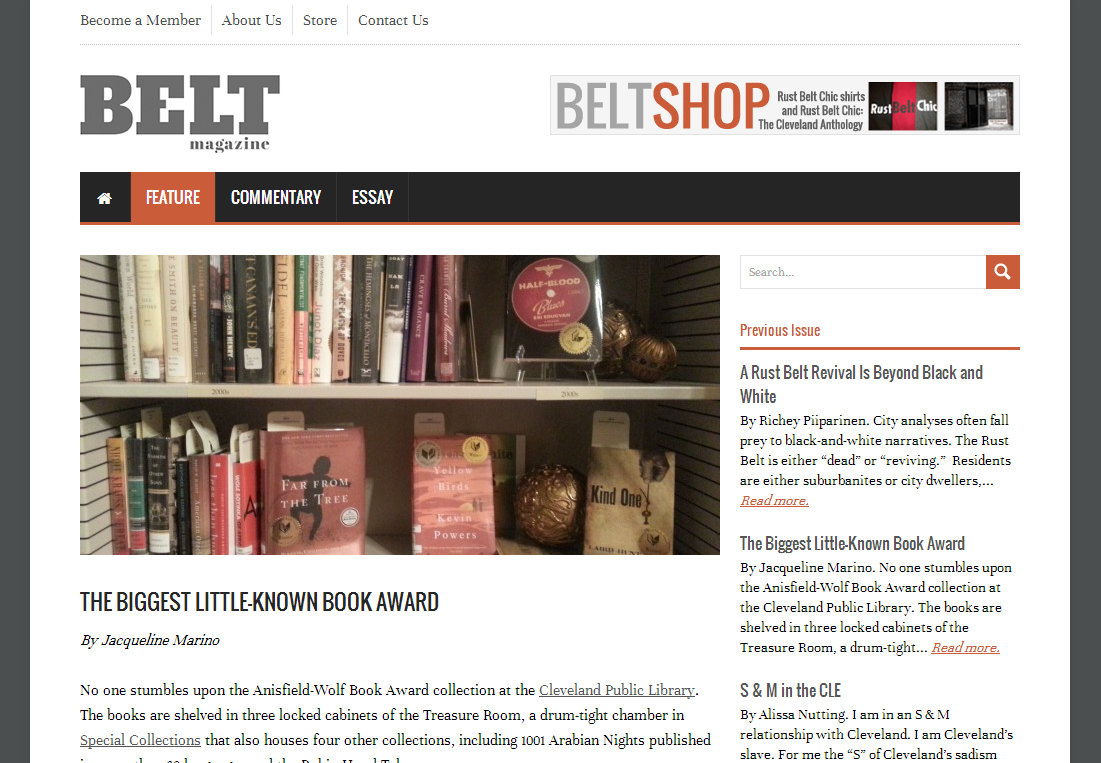By Lisa Nielson
Almost 90 years ago, two women quietly cooked up what is to this day the only juried literary prize addressing racism in the United States.
Edith Anisfield Wolf was born to privilege in 1889, but rather than living the comfortable life of a wealthy, educated woman, she dedicated her life to philanthropy and books. That choice stems from her family legacy.
When Edith was 12, her father called her into his office to ask her to help him best decide how to use the family wealth to help the community. Together, that’s exactly what they did. Her father, John Anisfield (1860-1929), immigrated from what is now Krakow, Poland, in 1876 at age 16. With the help of family and friends, he began working in Cleveland’s textile industry, eventually owning his own company, and later expanding into real estate.
A philanthropist and bridge builder, he quietly and effectively helped found Mt. Sinai Hospital and started Camp Anisfield. Edith and her father also faced tragedy. In 1901, Edith’s 9-year-old sister, Lizzie, died of pneumonia, followed by her mother, Daniella, a year later.
Edith graduated from East High and attended Mather College briefly but never finished. She married Cleveland lawyer Eugene Wolf (1884-1944) in 1918, and together they ran the family businesses after her father’s death. Edith was a poet, self-publishing five chapbooks and contributing poems to the Plain Dealer, a member of the Cleveland branch of the Pen Women Society and was unanimously elected to serve on the board of the Cleveland Public Library in 1943.
After talking with her friend, Amy Loveman, about how best to honor the legacy and memory of her father, Mrs. Wolf started the John Anisfield Prize in 1935, later the Anisfield-Wolf prize in honor of her husband Eugene.
She endowed the Anisfield-Wolf Community Prize, which has been administered by the Cleveland Welfare Federation (now the Center for Community Solutions) each year since her death in 1963. Edith left her books to the Cleveland Public Library, three paintings and other art pieces to the Cleveland Museum of Art, and her house on East Boulevard to the Welfare Federation.
In 1964, the Edith Anisfield Wolf Fund at the Cleveland Foundation provided a third of the funding to endow the Abba Hillel Silver Professorship in Judaic Studies at what is now Case Western Reserve University. It also awarded $30,000 to the Western Reserve Historical Society in 1970 to start an archive dedicated to Black history in Cleveland, the first such archive in the country.
Mrs. Wolf loved to garden, experiment with unusual recipes, and apparently was a fine pianist. Given that her father was fluent in German and Yiddish, she herself likely spoke both languages, in addition to French and Spanish. The list of books she donated to the Cleveland Public library indicates she (and her father) had wide ranging interests in history, philosophy, and languages.
From what thin correspondence remains from her, it seems she was an intensely private person and a woman of few words. Her handwritten notes are succinct, to the point, and written on the old-fashioned, thick-stocked note cards. Mrs. Wolf even refused to be involved in the prize she founded: “Mrs. Wolf made a great point of disassociating herself from the actual judging of the awards. She even refused to attend the annual awards ceremonies, on the grounds that she might seem to be putting herself forward too much.”
For all her reticence, however, her presence is felt. The Plain Dealer described her as a shrewd businesswoman who can spot a “phony” from a distance. References to her are invariably respectful, calling her “Mrs. Wolf” – a designation she herself preferred. On her election to the board of the library, the July 14, 1943 announcement in the Plain Dealer reported, “Mrs. Wolf is by nature conciliatory and soft spoken, but she manages to have her way.”
If you want to visit her remains, go to Knollwood Mausoleum in Mayfield Village, Ohio. She is in crypt #321. To visit the Anisfield and Wolf families, go to the Mayfield Cemetery in Cleveland Heights. You’ll find the Anisfields in the Mayfield Mausoleum and the Wolf family is close by.
Traces of Amy Loveman’s friendship with Edith can be glimpsed through random articles and off-the-cuff references. Given their mutual love of books, and Loveman’s importance as an editor and reviewer, their bond makes perfect sense.
Born in 1881, Loveman came from a literary family in New York City. Her maternal grandfather was the son of a rabbi. A linguist, encyclopedist and outspoken anti-slavery advocate, he wrote for The Nation. Her father emigrated from Hungary in 1850 and was a cotton broker who spoke six languages. Perhaps that is how the Anisfields and Lovemans became acquainted?
Loveman received her BA from Barnard in 1901; interestingly, she took no literature classes because she knew her love of reading would never end. In her first job, she worked for an uncle who was revising The New International Encyclopedia. She went to New York Evening Post, and became first a book reviewer, then later associate editor of the Post’s Literary Supplement, which she helped found in 1920.
In 1924, Loveman left with several colleagues to found a literary magazine, The Saturday Review, where she worked for the next 30 years. The masthead listed her as an associate editor and she wrote nearly 800 book reviews, editorials, and answers to questions from readers. In 1950, she became the poetry editor.
Despite being a poetry critic, (and culling 98% of submissions) she never wrote poetry herself: “I wouldn’t dare to,” she said, “knowing how well supplied the world already is with bad verse.”
Loveman edited, proofed, and mocked up Saturday Review editions, answered correspondence, and kept her male colleagues organized. She even rescued the paper on several occasions by locating missing items. Once she traveled to the dump to rummage in the trash to locate a missing photo. On another occasion, she and editor Norman Cousins spent hours frantically searching the warehouse for a missing manuscript to avoid legal repercussions. They found it behind a desk in the offices and the threatened lawsuit was dropped.
Along with the Saturday Review, Loveman was vital to the Book-of-the-Month club. She joined the reading committee in 1926 shortly after it was founded, then later became head of the editorial department in 1938, eventually joining the board of judges in 1951. Colleagues describe her as an optimist, kind, an elegant writer who adored Jane Austen, and corresponded with every great writer at the time. She was widely respected, to the degree that when her colleagues tried to throw a small surprise party to recognize her contributions to literary endeavors in June 1942, so many people wanted to attend, they had to rent a ballroom.
Loveman received the Columbia University Medal for Excellence and the Constance Lindsay Skinner Achievement Award of the Women’s National Book Association in 1946. Wheaton and Wilson colleges awarded her honorary Litt.D degrees in 1950. Amy served on the Anisfield Wolf jury in the 1940s.
On her death in 1955, Norman Cousins penned a lengthy obituary for the Saturday Review, and in 1956, published a 21-page eulogy with Overbrook Press. In his magazine obituary, Cousins wrote, “Amy Loveman was less cluttered emotionally than any person I have ever known. Her nobility was a universe: and to know it was to soar inside it.”
Lisa Nielson is an Anisfield-Wolf SAGES Fellow at Case Western Reserve University. She has a PhD in historical musicology, with a specialization in Women’s Studies, and teaches seminars on the harem, slavery and courtesans.


